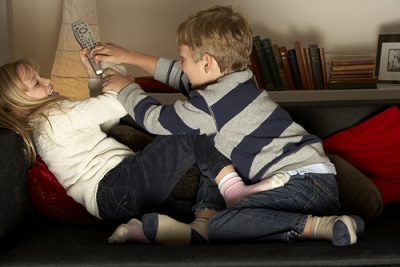 Routines and household rules are always a really important part of family life; with them, they give us structure, consistency, boundaries, predictability and discipline. When our toddlers or older children are unsure of their limits or boundaries as to what is expected of them, it can leave them feeling frightened and insecure.
Routines and household rules are always a really important part of family life; with them, they give us structure, consistency, boundaries, predictability and discipline. When our toddlers or older children are unsure of their limits or boundaries as to what is expected of them, it can leave them feeling frightened and insecure.
One of the well-known tools of parenting that we all hear and read about is using consequences to change our children’s behaviour. We often give that first, second and third warning when our child continues to scream or hit out at their brother, or demand that packet of sweets at their eye level in the supermarket. We’re often guilty at times of not following through and as a result our child has got that message that we don’t really mean it, even though we have great intentions and the cycle repeats itself. Discipline works best when it’s about teaching our children and encouraging good behaviour.
So, to move away from this cycle of warnings, empty threats, unhappy children and frustrated parents, it’s really important to consider the following pointers for the next time you are at logger-heads and need a plan of action!
Consequences are used to enforce limits and reinforce rules when simple reminders haven't worked. They are like a loss of something our children love such as toys, pocket money or time away from others.
Consequences are most effective and meaningful to our children when we take into account the following tips.

A consequence should:
1. Come with a warning
The most important point here is to only give your child one warning, delivering it clearly and calmly. This gives them the opportunity to change their behaviour. Always follow through with the consequence you have given them if your child continues to misbehave. For example, two siblings are fighting over what to watch on the TV; you tell both children that if they continue to fight, the television is turned off for 10 minutes until they have reached an agreement. If the children continue to fight, you must turn the TV off, no more warnings.
2. Be immediate
Consequences that happen right after a behaviour are most effective, for example, immediately turning the TV off after that first warning has been given if the fighting continues.
3. Be achievable and realistic
They don’t have to be harsh or lengthy to be effective. The advantage of keeping a consequence short is that you quickly give your child an opportunity to try again. For example, turning off the TV for 10 minutes gives them a chance to figure out a way of managing the situation with your support. If it is turned off for the rest of the day; firstly, there are no more opportunities for them to learn to manage the situation differently, and secondly, as for the parent you are left with making sure that this consequence is followed through for that entire day, which is time consuming and it doesn’t allow the parent or child move on.
4. Relate to your child’s behaviour
Children learn that their behaviours affect what happens to them in the future. A consequence should be tied to the behaviour that earned the consequence.
No matter what, once you have followed through with the consequence and your child has responded well, always reconnect with your child by giving them a hug or acknowledgment that all is good between you and that you can both move on with your day!












